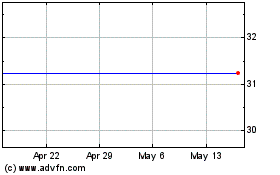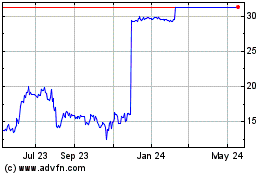3rd UPDATE: Roche's Hopes For Speedy Drug Approval Dashed
28 August 2010 - 1:13AM
Dow Jones News
Roche Holding AG's (ROG.VX) hopes for a speedy approval of a new
breast cancer drug were dashed Friday after U.S. regulators
rejected a priority review of T-DM1, adding another item to the
growing list of drug development delays and setbacks at the Swiss
pharma giant.
The rejection by the U.S. Food and Drug Administration means
that Roche will have to finalize an ongoing phase III study before
it can file for approval for the medicine, something it hopes to do
in mid-2012. Had the FDA granted accelerated approval, analysts had
expected Roche to launch the drug early next year.
"We firmly believe in the potential of T-DM1 ... and remain
fully committed to its ongoing development," said Hal Barron,
Roche's head of global development and chief medical officer. Roche
had filed T-DM1 for priority review in early July, raising
analysts' hopes the medicine could help sooner than expected to
replace Roche's blockbuster drug Herceptin, which will lose patent
protection in years to come.
While the setback of Roche's T-DM1 only leads to the drug's
approval being delayed, analysts said they were still disappointed
about the FDA decision. "It's not a big setback, but it doesn't
help sentiment after the recent development disappointments," said
Silvia Schanz, analyst at Bank Vontobel.
"Although the revenue implications are minimal...this setback
raises further questions on the late stage pipeline at Roche," said
Karl-Heinz Koch of brokerage Helvea.
Roche has had a string of setbacks recently, including its
experimental diabetes medicine taspoglutide, whose approval filing
had to be delayed due to safety concerns. Other blows include the
discontinuation of experimental drug ocrelizumab for treating
patients suffering from rheumatoid arthritis. Roche's cancer drug
Avastin also failed in late-stage prostate cancer trials. Earlier
this month, U.K. regulators rejected Roche's Avastin in bowel
cancer on grounds of cost effectiveness.
Shares of Roche, which have lost more than 20% this year due to
growing pipeline concerns and fears that world-wide austerity
programs will hurt its sales and profit margins in the years to
come, traded lower in early trade. At 1431 GMT, they were up 0.6
Swiss francs, or 0.4%, at CHF137.7 in an overall firmer market.
Analysts, however, noted that Roche's recent disappointments
were manageable because, unlike some of its competitors, the Swiss
company doesn't face immediate patent losses and thus has more time
to develop new drugs. Recent takeovers and licensing deals should
also help Roche going forward, they said, noting the FDA's
rejection of T-DM1 was due to technical rather than fundamental
reasons.
Roche said the FDA's rejection of priority review was due to the
fact that the T-DM1 trials failed to meet the standard for
accelerated approval "because all available treatment choices
approved for metastatic breast cancer, regardless of HER2 status,
had not been exhausted in the study population." The priority
filing of T-DM1 was partly due to the fact that the drug works well
with breast cancer patients who have a high level of protein
HER2.
T-DM1, should it be approved, could become a blockbuster drug
with net peak sales of around CHF2 billion or more, according to
analysts' estimates. Unlike traditional cancer therapies, T-DM1,
which is also known as trastuzumab-DM1, targets only cancerous
cells as the medicine links a monoclonal antibody and a cytotoxic.
In chemotherapy, healthy cells are also destroyed, increasing
chances for complicated side effects. The drug was developed by
Roche unit Genentech and Immunogen Inc. (IMGN).
-By Goran Mijuk, Dow Jones Newswires; +41 43 443 80 47;
goran.mijuk@dowjones.com
ImmunoGen (NASDAQ:IMGN)
Historical Stock Chart
From Jun 2024 to Jul 2024

ImmunoGen (NASDAQ:IMGN)
Historical Stock Chart
From Jul 2023 to Jul 2024
